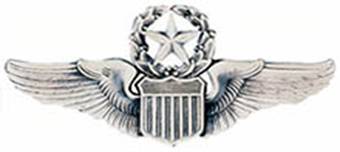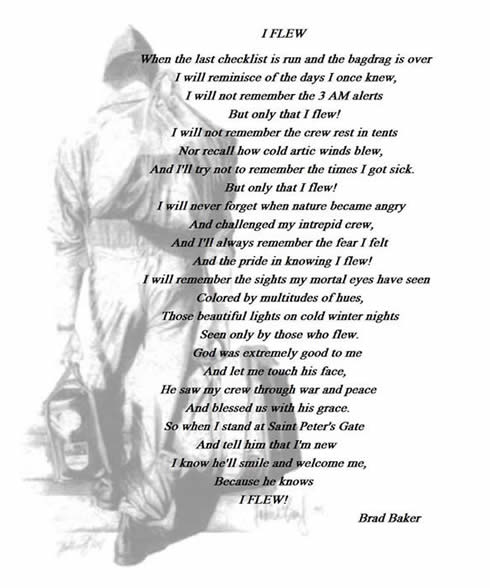Contrail Auctions

Airplanes
Aviation, etc.

EASTERN
AIR LINES L-1011
This page is dedicated to airplanes, and the people that fly them.
"High Flight"
Oh!
I have slipped the surly bonds of earth
And danced the skies on laughter-silvered wings;
Sunward I've climbed, and joined the tumbling mirth
Of sun-split clouds - and done a hundred things
You have not dreamed of - wheeled and soared and swung high in the sunlit
silence.
Hov'ring
there,
I've chased the shouting wind along, and flung
My eager craft through footless halls of air.
Up, up the long, delirious, burning blue
I've topped the wind-swept heights with easy grace
Where never lark, or even eagle flew -
And, while with silent lifting mind I've trod
The high untrespassed sanctity of space,
Put out my hand and touched the face,
of God.
John Gillespie Magee, Jr.
"Pilots"
You see them at airport terminals around the world.
You see them in the morning early, sometimes at night. They come
neatly uniformed and hatted, sleeves striped; they show up looking
fresh. There's a brisk, young-old look of efficiency about them.
They arrive fresh from home, from hotels, carrying suitcases, battered
briefcases, bulging, with a wealth of technical information, data,
filled with regulations, rules.
They know the new, harsh sheen of Chicago's O'Hare. They know the
cluttered approaches to Newark; they know the tricky shuttle that
is Rio; they know, but do not relish, threading the needle into
Hong Kong.
They respect foggy San Francisco. They know the up-and-down walk
to the gates at Dallas, the Texas sparseness of Abilene, the Berlin
Corridor, New Orleans' sparking terminal, the milling crowds at
Washington. They know Butte, Boston, and Beirut. They appreciate
Miami's perfect weather, they recognize the danger of an ice-slick
runway at JFK.
They understand about short runways, antiquated fire equipment,
inadequate approach lighting, but there is one thing they will never
comprehend: Complacency.
They remember the workhorse efficiency of the DC-3's, the reliability
of the DC- 4's and DC-6's, the trouble with theDC-7's. They discuss
the beauty of an old gal named Connie. They recognize the high shrill
whine of a Viscount, the rumbling thrust of a DC-8 or 707. And a
Convair.
They speak a language unknown to Webster. They discuss ALPA, EPR's,
fans, mach and bogie swivels. And, strangely, such things as bugs,
thumpers, crickets, and CATs, but they are inclined to change the
subject when the uninitiated approaches.
They have tasted the characteristic loneliness of the sky, and occasionally
the adrenaline of danger. They respect the unseen thing called turbulence;
they know what it means to fight for self-control, to discipline
one's senses.
They buy life insurance-but make no concession to the possibility
of complete disaster, for they have uncommon faith in themselves
and what they are doing.
They concede that the glamour is gone from flying. They deny that
a man is through at sixty. They know that tomorrow, or the following
night, something will come along that they have never met before;
they know that flying requires perseverance. They know that they
must practice, lest they retrograde.
They realize why some wit once quipped: "Flying is year after year
of monotony punctuated by seconds of stark terror."
As a group, they defy mortality tables, yet approach semi-annual
physical examinations with trepidation. They are individualistic,
yet bonded together. They are family men, yet rated poor marriage
bets. They are reputedly overpaid, yet entrusted with equipment
worth millions. And entrusted with lives, countless lives.
At times they are reverent: They have watched the Pacific sky turn
purple at dusk. They know the twinkling, jeweled beauty of Los Angeles
at night; they have seen snow up on the Rockies. They remember the
vast unending mat of green Amazon jungle, the twisting silver road
that is the father of Waters, an ice cream cone called Fujiyama.
And the hump of Africa.
They have watched a satellite streak across a starry sky, seen the
clear, deep blue of the stratosphere, felt the incalculable force
of the heavens.
They have marveled at sun-streaked evenings, dappled earth, velvet
night; spun silver clouds, sculptured cumulus: God's weather. They
have viewed the Northern Lights, a wilderness of sky, a pilot's
halo, a bomber's moon, horizontal rain, contrails and St Elmo's
Fire.
Only a pilot experiences all these. It is their world.
--Author unknown
"Why I Want To Be A Pilot"
When I grow up I want to be a Pilot because it’s a fun job and easy to do. That’s why there are so many Pilots flying around these days.
Pilots don’t need much school, they just have to learn to read numbers so they can read instruments. I guess they should be able to read road maps too, so they can find their way if they get lost.
Pilots should be brave so they won’t get scared if it’s foggy and they can’t see, or if a wing or a motor falls off they should stay calm so they’ll know what to do.
Pilots have to have good eyes to see through clouds and they can’t be afraid of lightning or thunder because they are much closer to them than we are.
The salary Pilots make is another thing I like. They make more money than they know what to do with. This is because most people think that plane flying is dangerous, except Pilots don’t because they know how easy it is.
There isn't much I don't like, except girls like pilots and all the stewardesses want to marry them and they always have to chase them away so they won’t bother them.
I hope I don’t get airsick because I get carsick and if I get airsick I couldn’t be a Pilot and then I would have to go to work.
Tommy Tyler, Fifth Grade

Once the wings go on, they never come off, whether they can be seen, or not. It fuses to the soul through adversity, fear and adrenaline and no one who has ever worn them with pride, integrity and guts, can ever sleep through the ‘call of the wild ‘ that wafts through bedroom windows in the deep of the night.
When a good pilot leaves the ‘job’ and retires, many are jealous, some are pleased and yet others, who may have already retired, wonder. We wonder if he knows what he is leaving behind, because we already know. We know, for example, that after a lifetime of camaraderie that few experience, it will remain as a longing for those past times. We know in the world of flying, there is a fellowship which last long after the flight suits are hung up in the back of the closet. We know even if he throws them away, they will be on him with every step and breath that remains in his life. We also know how the very bearing of the man speaks of what he was and in his heart still is.
"To Know"
Who said you could use
them...the sky and the clouds...
The sunrise and moonglow, who Said you're allowed...
To rise above man, look down on the Earth,
Feel the freedom of flight man
has sought since his birth.
Who said you could use them...
the sun and the stars...
To find your way home and know
who you are.

And once you have tasted flight you will walk the earth with your eyes turned skyward, for there you have been, and there you would return.
John Hermes Secondari
To fly west, my friend, is a flight we must all take for that final check.
--Author unknown
IN MEMORY OF THOSE FRIENDS WHO HAVE FLOWN WEST
LT. COLONEL JOHN J. CROSS 1941 - 1997
MAJ. GENERAL CHARLES W. HARRIS 1929 - 2004
LT. COLONEL JAMES W. KUMPF 1929 - 2010
CAPTAIN DON R. "BOB" ERVIN 1936 - 2017
BRIG. GENERAL G. DENNIS LEADBETTER 1933 - 2020
REMEMBER, PILOTS ARE JUST PLANE PEOPLE, WITH A SPECIAL AIR ABOUT THEM.